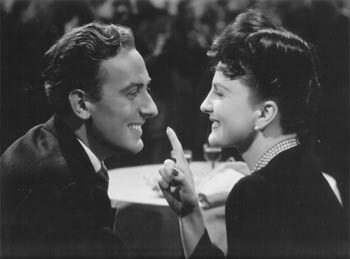The Christmas book market is about to be flooded, if that’s the word for these somewhat juiceless jottings, by not one but two biographies of the actress Coral Browne. This dual assessment is perhaps just as well, as quite clearly there were two Coral Brownes, one a witheringly witty, ravishing (in the early 1960s she was voted one of the three most beautiful women in the world, along with Princess Grace and Nina of aristo folk singers Nina and Frederick), loyal and quintessentially ‘West End’ creature; the other an insecure, sour, mercenary, and often cruel self-creation, the Coral evident in her attitude to, and treatment of, the children of her second husband, the epicene actor Vincent Price.
Both books are high in fag-hagiography heaven, and both authors appear enamoured of their subject. But they have used exactly the same sources and interviewed precisely the same people, so it is hardly surprising that the same stories crop up in each in almost identical form and wording, though Miss Collis has a slight edge over Miss Angell, as she recognises and recounts, with cutting clarity, the less savoury side of the aging, fading star.
She also relates, without too many ****, a slightly wider assortment than Angell does of the more printable of Browne’s famously funny and often devastating remarks; but, as Gertrude Stein so bluntly warned Hemingway, ‘remarks are not literature, Ernest’. For Coral’s to have their stinging impact they need to be delivered in that strained, strangulated Strine she reserved for the purpose, having otherwise diligently discarded every trace of her Ozzie roots; and woe betide the unwary who reminded her of them, particularly of ‘Lesvic’, which, while sounding as if it should be part of Holstein, was what the Browne parents, by combining their first names, called their home in that ‘gloomy’, according to their only child Coralie Edith, suburb of Melbourne, Maribyrnong.
She was, from the start, a very brilliant girl; however, Mrs Browne didn’t think she had a lovely daughter. Having herself once nurtured ambitions to tread the boards, she became jealous of the almost instant success, in such vehicles as the appropriately titled Let Us Be Gay, and glamour of the by now Coral, and as a result deeply critical of them, of her dazzling performances, clever friends, influential lovers, stunning looks and particularly her elegant clothes, which were to be a second trademark all her life; Coral was an equally skilled dress-designer and maker as barb-thrower.
Vic ‘was evil to Coral … vitriolic … nothing was right,’ said her best friend Jill Melford. Thus it is startling to read that when, in the winter of 1934, Coral, surely resplendent in sables at the top of the liner’s gangplank, waves a suede-gloved goodbye to the land of her birth, it is Vic who accompanies her. And in fact the moment Les dies, Coral moves her mother permanently to the Suncourt Hotel, in then dingy Kensington, in a London she ever after, hilariously, hated. Vic wrote:
How I miss my beloved Australia. London these days is full of blacks and queer drug addicts and expensive … Lunch is never under £3.15. Soho cheaper to dine in, but one must be prepared for a shooting.
Mrs Browne is the comic relief in this unreal-life drama, along with Coral’s first, adored, adoring, and clearly adorable gay husband Philip Pearman. Theirs was a loving, easy, teasy marriage: ‘Worrying to find the Kinsey Report by the bed with a pansy bookmark in it at “Masturbation”,’ she typically wrote to him. But until they met Coral had a chain of lovers, some unlikely, given her professed penchant for pooves, among them Peggy Ashcroft’s cast-off lover, the black actor Paul Robeson, and Rex Harrison. Of the more likely, though still somewhat surprising, was Garbo’s off-on tenterhooked toy-boy, Cecil Beaton. His pounce, Coral said, was so quick it didn’t even leave her time to say ‘gosh’, though years later, asked to describe the affair, she replied it was ‘a bit like being a sailor’.
In these and other conquests, Coral not only honed her talent but polished up her much sought-after Englishness. It is often said that being an Australian in London in the post-war years was an uphill struggle against preconceived loudmouthed illiteracy (though I remember the first Ozzies I met, such as the couturiers Bob Schulz and Bill Muldoon, and Coral’s stage-designer friend Loudon Sainthill, as being fearfully glamorous and exquisitely mannered). Thus, while never becoming a major star in the bums-on-seats sense of that word, and always slightly second string socially, Coral chose to act grander than anyone, capping it with the role of being the First Lady of the Filthy Tongue. Along with an exhausting catalogue raisonné of her entire career, the authors of these two books both manage to put across the impression that Coral Browne was often effingly funny, and, for the most part, blindingly attractive.





Comments